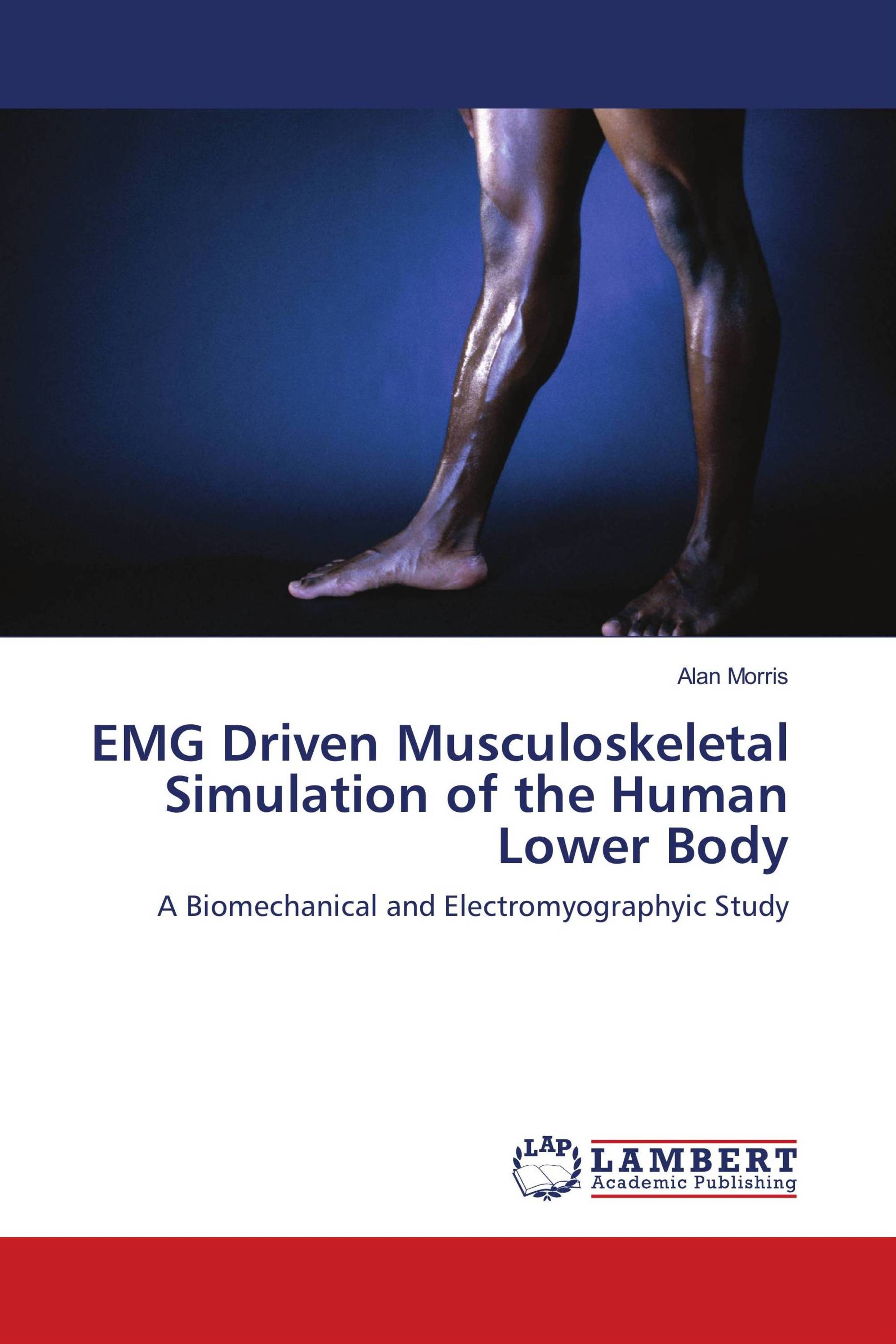EMG Driven Musculoskeletal Simulation of the Human Lower Body
A Biomechanical and Electromyographyic Study
€ 79,00
Predictive musculoskeletal models have the potential to positively influence the orthopaedic management of movement pathologies. A scalable geometric model of the lower-body was defined from an adult database. A Hill-type EMG driven dynamic computational muscle model was developed and validated against published and new experimental data. A lower-body simulation model was constructed incorporating skeletal joint definitions, musculotendon actuators, passive joint dynamics and ground reactions forces. A 13-muscle EMG driven inverse-kinetic simulation model of knee flexion-extension contraction was developed and evaluated using dynamometric data covering a wide- range of contraction speeds and modes (isokinetic, isotonic, eccentric, and isometric) for five able- bodied adult male subjects. Both shape and transfer function based Hill-type muscle models were evaluated. For the transfer function-based model, across all subjects the average correlations ranged between r = 0.61-0.77 and average RMS error = 21- 29%. For the shape function-based model, the average correlations ranged between r = 0.76-0.92 and an average RMS error = 25-31%.
Book Details: |
|
|
ISBN-13: |
978-3-8383-0494-6 |
|
ISBN-10: |
3838304942 |
|
EAN: |
9783838304946 |
|
Book language: |
English |
|
By (author) : |
Alan Morris |
|
Number of pages: |
248 |
|
Published on: |
2010-05-30 |
|
Category: |
Mechanical engineering, manufacturing technology |
